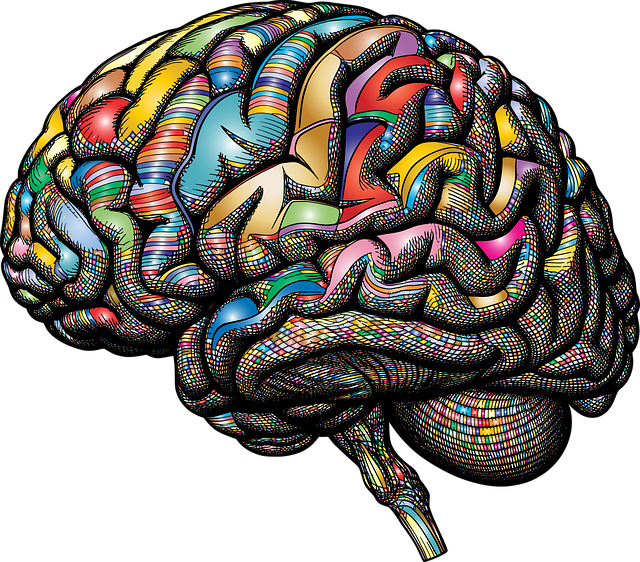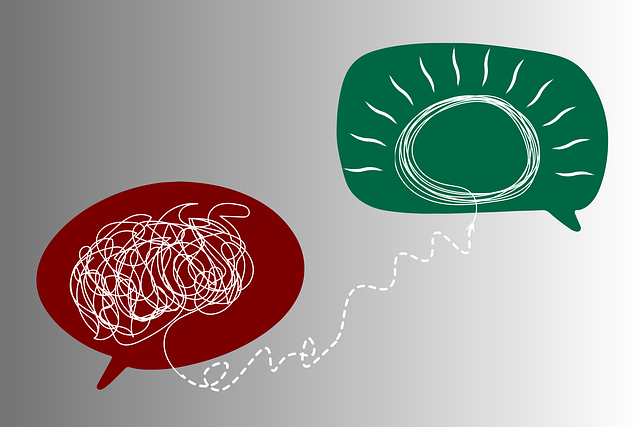Young adults face unique anxiety challenges due to academic pressures, career uncertainties, and social expectations during life transitions. Effective tailored therapy approaches include emotional intelligence training, mental wellness journaling, and confidence-building activities. Safe group facilitation techniques, like active listening, empathy, and clear boundaries, enhance therapy for young adults with anxiety. Incorporating CBT and peer support normalizes mental health conversations, fostering trust and shared responsibility for emotional well-being.
Mental wellness group facilitation plays a pivotal role in supporting young adults grappling with anxiety. This article delves into effective strategies tailored to this demographic, focusing on common triggers, evidence-based techniques, and fostering supportive environments. We explore creating safe spaces, active listening, CBT integration, and peer support as powerful tools for enhancing mental health outcomes. By understanding the unique challenges of young adult anxiety, facilitators can guide groups toward managing stress, building resilience, and embracing better wellness practices.
- Understanding Young Adult Anxiety: Unveiling Common Triggers and Challenges
- Creating a Safe Space: Establishing Ground Rules for Effective Group Facilitation
- Active Listening and Empathy: Building Trust and Connection in the Group
- Evidence-Based Techniques: Incorporating Cognitive-Behavioral Therapy (CBT) Strategies for Anxiety Management
- Fostering Peer Support: Encouraging Accountability and Shared Responsibility for Mental Wellness
Understanding Young Adult Anxiety: Unveiling Common Triggers and Challenges

Young adults face a unique set of challenges when it comes to anxiety, often stemming from various factors like academic pressures, career uncertainties, and social expectations. This age group is navigating critical life transitions, which can significantly impact their mental health. In today’s fast-paced world, where instant gratification and constant connectivity are the norm, young adults may struggle with feelings of inadequacy and fear of missing out (FOMO). These triggers can exacerbate existing anxiety disorders or manifest as new concerns.
Therapy for young adults with anxiety often involves tailored approaches that address these specific challenges. Techniques such as emotional intelligence training equip them with skills to recognize and manage their emotions effectively. Mental wellness journaling exercises guidance on processing thoughts and experiences, fostering self-awareness. Additionally, building confidence through various activities can help counteract anxious thoughts and behaviors. By combining these strategies, facilitators support young adults in understanding and overcoming their anxiety triggers, paving the way for improved mental wellness.
Creating a Safe Space: Establishing Ground Rules for Effective Group Facilitation

Creating a safe space is paramount for effective mental wellness group facilitation, especially when targeting young adults struggling with anxiety. This involves establishing an environment where participants feel comfortable expressing their thoughts and emotions freely, without fear of judgment or ridicule. Ground rules play a pivotal role in achieving this. Facilitators should lead discussions on expected behaviors, encouraging active listening, respect for others’ opinions, and confidentiality to foster trust. These rules ensure every individual feels valued and empowered to contribute, which is essential for building a supportive community.
Additionally, setting clear boundaries helps manage group dynamics. Facilitators can guide members through self-awareness exercises to identify personal triggers and coping mechanisms. This process allows individuals to develop strategies for navigating challenging situations, boosting their confidence in managing anxiety symptoms. By implementing these techniques, facilitators create an inclusive environment conducive to therapy for young adults with anxiety, fostering a sense of belonging and encouraging active participation.
Active Listening and Empathy: Building Trust and Connection in the Group

In facilitating mental wellness groups for young adults struggling with anxiety, active listening and empathy play a pivotal role in building trust and connection among group members. By fully concentrating on each speaker, facilitators can convey understanding and validate participants’ feelings, fostering an environment of safety and support. This not only encourages open dialogue but also strengthens the therapeutic bond, enabling individuals to explore their experiences and emotions more deeply.
Empathy further enhances this process by allowing facilitators to mirror the sentiments expressed, helping participants feel seen and heard. This technique cultivates self-esteem improvement as individuals recognize their worth and validity within the group dynamic. Moreover, incorporating practices like Mental Wellness Journaling Exercises or Community Outreach Program implementations can reinforce these principles, creating a holistic approach to therapy tailored for young adults navigating anxiety.
Evidence-Based Techniques: Incorporating Cognitive-Behavioral Therapy (CBT) Strategies for Anxiety Management

Incorporating evidence-based techniques like Cognitive-Behavioral Therapy (CBT) is a powerful approach to facilitating mental wellness groups for young adults suffering from anxiety. CBT strategies focus on challenging and changing unhelpful thought patterns and behaviors, helping individuals gain control over their emotions and experiences. By teaching participants to identify cognitive distortions, group facilitators can empower them to replace negative thoughts with more realistic and positive ones, thereby reducing anxiety symptoms.
This therapeutic approach emphasizes the importance of mental health awareness and emotional intelligence, encouraging active participation and self-reflection. Through structured activities and discussions, facilitators guide members in understanding their unique triggers and developing personalized coping strategies. By integrating CBT techniques into group settings, facilitators can foster a supportive environment that promotes anxiety relief and empowers young adults to navigate their mental health journeys effectively.
Fostering Peer Support: Encouraging Accountability and Shared Responsibility for Mental Wellness

In a mental wellness group setting, fostering peer support is a powerful technique to enhance therapy for young adults struggling with anxiety. By encouraging participants to hold each other accountable and share responsibility for their emotional well-being, a sense of collective care and understanding is cultivated. This dynamic not only reduces feelings of isolation but also empowers individuals to support one another through various stress reduction methods and anxiety relief strategies.
Group members can take turns sharing their experiences with managing anxiety and employing emotional well-being promotion techniques. This open dialogue normalizes conversations around mental health, fostering an environment where participants feel comfortable discussing challenges and triumphs. Peer support also serves as a reminder that they are not alone in their struggles, which is crucial for building resilience.
Mental wellness group facilitation offers a powerful approach to support young adults struggling with anxiety. By understanding common triggers, creating safe spaces, actively listening, and employing evidence-based techniques like CBT, facilitators can foster trust and connection among peers. Encouraging peer support and shared responsibility enhances accountability, empowering individuals to take an active role in their mental wellness journey. This holistic approach, as discussed, provides a comprehensive therapy for young adults anxiety, offering a supportive network and practical tools for managing and overcoming challenges.









